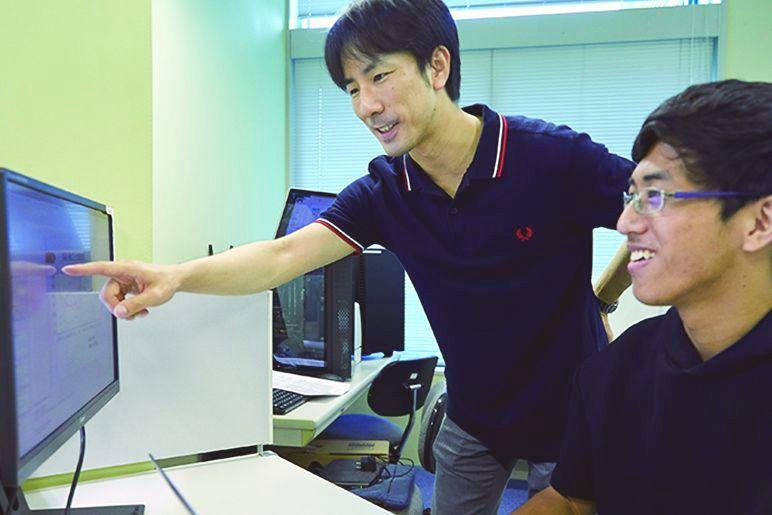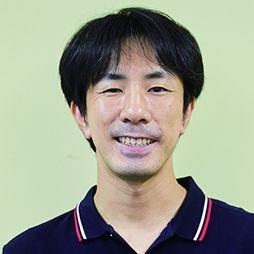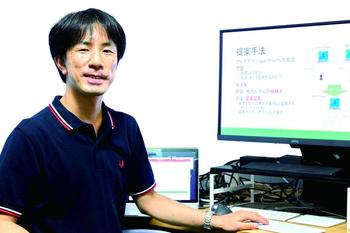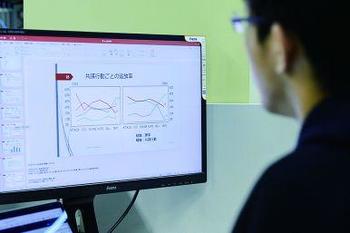- TOP
- Cutting-edge Research and Social Contribution
- Cutting-edge Research
- Pioneering a new generation of games. Focusing in on the concept of "diversity" in artificial intelligence

Pioneering a new generation of games. Focusing in on the concept of "diversity" in artificial intelligence

Exploring the effects of cooperation by multiple game-playing AIs
Amidst the global surge in AI development, shogi stands out as a game profoundly influenced by these advancements. In Japan, matches between computer shogi programs and professional shogi players have been actively held since around 2010, and AI's repeated wins over shogi professionals have garnered public attention.
Dr. Takeuchi's specialty is game informatics. He's been involved with shogi since his elementary school days, and he honed his skills in the shogi club in high school. Due to his interest in computer shogi, he began research on improving the performance of computer shogi as a senior in college, and as a member of a Game Programming Seminar (GPS) made up of instructors and students from the Graduate School of Arts and Sciences of The University of Tokyo, he played a role in the development of software called "GPS Shogi."
And that's just how it happened. GPS Shogi was the winner in 2009 and 2012 at the World Computer Shogi Championship. Furthermore, in the fifth game at the 2nd Shogi Denou-sen Match held in 2013, GPS Shogi won against an A-class, eighth-dan shogi professional, becoming the first AI to defeat an A-class professional. This showed that AI was equal to or superior to human pros, and Dr. Takeuchi's splendidly achieved his goal of defeating a shogi professional with software he helped develop.
When AI reached the level of professional shogi, it was a turning point for Dr. Takeuchi. He shifted the focus of his research, moving beyond mere competition for victory with powerful AI. Instead, he delved into exploring cooperation by multiple game-playing AIs, aiming to develop systems capable of more efficient processing than individual AIs.
For example, one technique of employing multiple game-playing AIs in shogi is to gather moves from several programs and take a majority-rules vote to determine the preferred move. This technique is known to be stronger than a single program if randomness is introduced to programs of the same type, and even better results are obtained by combining programs of different types. However, there has been an issue in that, if weak programs constitute a majority, their move will be chosen by majority vote.
Dr. Takeuchi has suggested a method of circumventing this problem by varying vote weights according to strength and other factors, rather than assigning an equal vote to all players. Research has shown this "weighted" technique is superior to ordinary majority voting. This is an example where a technique was discovered to improve AI performance by adeptly using multiple game-playing AIs.

Advancing towards a system for human-AI collaboration by exploiting the effectiveness of advice
Dr. Takeuchi: "This is an era where multiple strong game-playing AIs are available, so I want to make new discoveries--identifying things people can do that AI can't, and things made possible by AIs superior to humans." One thing humans can do that AIs can't is give advice. People are said to improve their shogi skill through advice, but does advice work for AI too? To elucidate that question, Dr. Takeuchi has devised a technique where game-playing AIs provide advice to other game-playing AIs, and run experimental matches between majority-rules voting systems and individual game-playing AIs.
The results showed the new technique had significantly more wins than losses, underscoring the effectiveness of advice. Dr. Takeuchi has also investigated when advice is effective, and how results differ depending on the strength of the adviser. It was found that meaningful advice can be obtained not only from strong players, but also from fairly weak players. In short, a new technique has been established for strengthening game-playing AIs by receiving advice.
On the flip side, humans--not just AI-- can also suggest candidate moves. Likewise, AI can provide pertinent advice to humans at any time during a game. In this way, Dr. Takeuchi is looking to explore the theme of advice not just between AIs, but in systems where humans and AI collaborate.
Diversity is the keyword for improving performance via multiple game-playing AIs
Previous research on majority-rules voting and advice has shown that, when multiple game-playing AIs are used, performance can be improved more effectively by using teams not of similar game-playing AIs, but AIs of varied strength. Dr. Takeuchi has focused in on "diversity" as the key to performance improvement when combining multiple game-playing AIs, and he is elucidating the relationship between winning percentage and diversity in majority-rules voting where diversity is said to be particularly effective. Diversity in game-playing AI is a new theme, and research has barely scratched the surface, even on the global level.

Games have been used as a test environment for AI for a long time, and AI has made dramatic leaps forward through research based on games. Dr. Takeuchi believes that "what is achieved with games isn't limited to just games--it has broader applications across AI."
He continues: "The concepts of advice and diversity are not limited to games, and I take pride in their applicability to a diverse array of fields. Going forward, I will continue thinking about ways to use multiple game-playing AIs more effectively, and I will strive to systematize our research results. In that way I hope to be a leader in research on the use of multiple game-playing AIs."
Date of posting: December, 2023/ Date of interview: June, 2022
